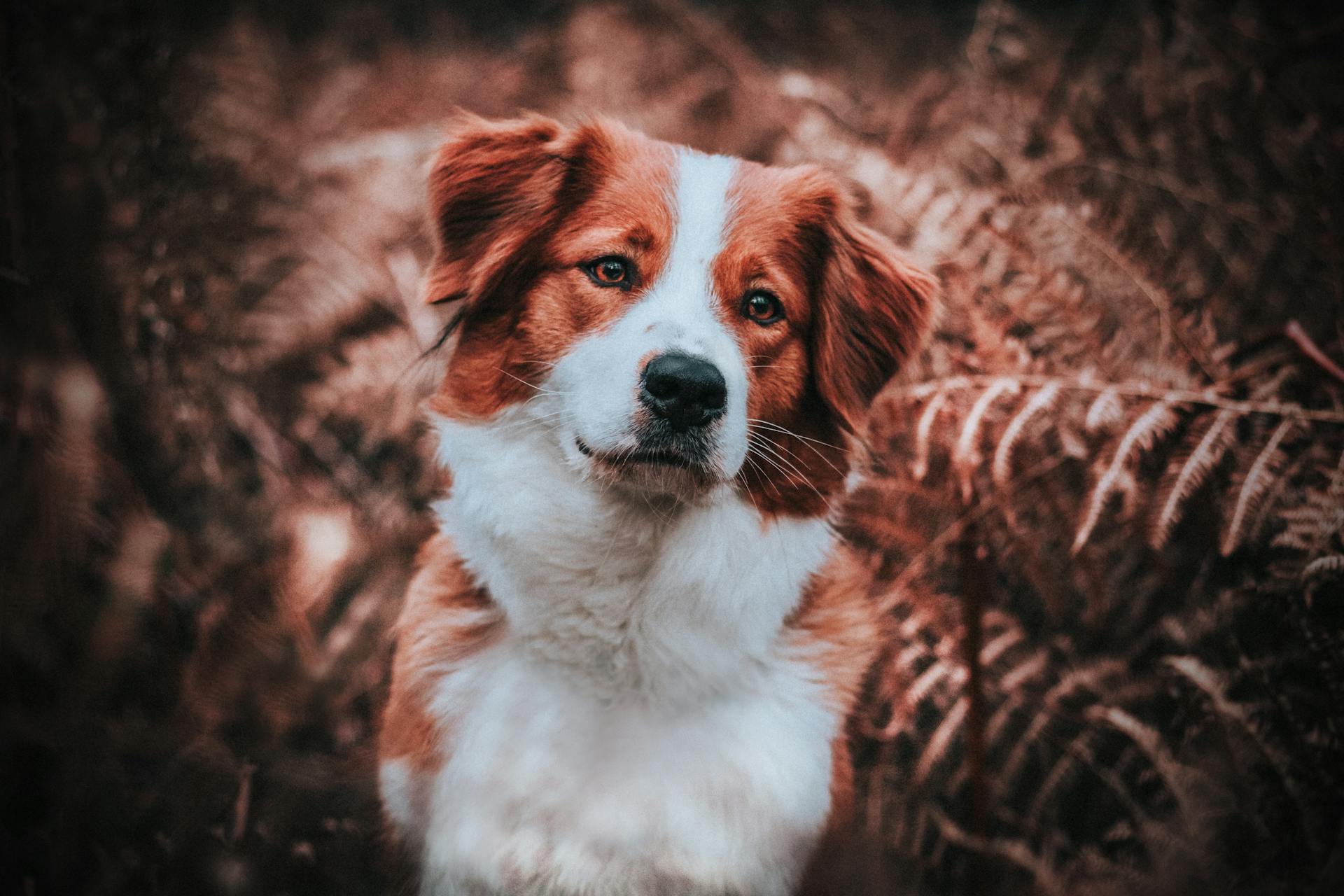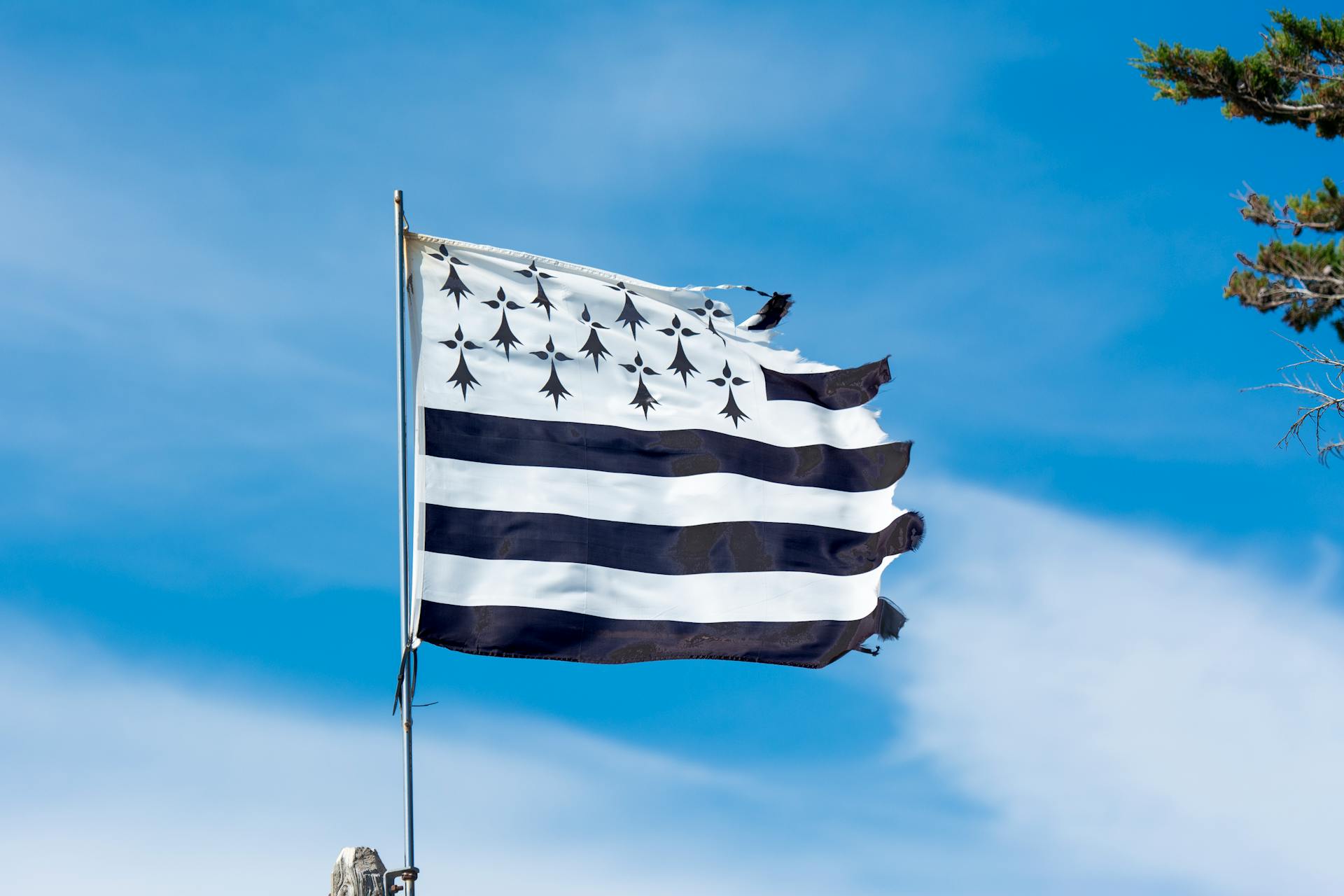
Raising a Brittany puppy requires a solid foundation in training, socialization, and exercise.
Establish a routine from the start, as this will help your puppy feel secure and develop good habits.
Brittany puppies are naturally energetic and love to run, so daily exercise is crucial to burn off excess energy.
Socialization is just as important as training, and should begin immediately to help your puppy become confident in new situations.
Consistency is key when it comes to housebreaking, and establishing a routine will help your puppy learn to go potty outside.
Positive reinforcement training methods are highly effective with Brittany puppies, as they respond well to rewards and praise.
Training Basics
Brittanys are intelligent dogs who thrive on human interaction and love to learn. They are eager to please and quick to learn when trained with positive reinforcement, praise, and delicious treats.
Consistency is key when training a Brittany. Short training sessions, ideally around 10-15 minutes long, help keep their attention and make learning fun. Regular training sessions should be practiced over a period of time, such as a week or two.
To ensure successful training, always use positive reinforcement methods, rewarding good behavior with treats, praise, or playtime. Never shout at, smack, or punish your dog, as this can be detrimental to their sensitive nature.
Here are some essential training tips to keep in mind:
- Start training early to take advantage of your puppy's receptive and adaptable nature.
- Respect training is crucial to establishing a strong bond between you and your dog.
- Socialization is vital to expose your dog to different environments, people, and other animals from a young age.
Set Out
To set out on a successful training journey with your French Brittany, start by getting your dog excited about a toy or decoy. Take him to the yard or out for a walk with treats in your pocket and a toy he loves.
Make sure you have his attention when you throw the toy or decoy, and that he can see where it has gone. This will encourage him to chase after it. You can point to it, wave your arms, and get him worked up.
It's essential to reward your dog with treats every time he brings the toy or decoy back to you. Hand over the reward within a few seconds to associate it with the action. This will help him understand what's expected of him.
Here are some key things to keep in mind as you start training your French Brittany:
- Start with short training sessions, ideally 10-15 minutes long, to keep your dog's attention.
- Use positive reinforcement, such as treats, praise, or playtime, to encourage good behavior.
- Be consistent and patient, as French Brittanys are intelligent and eager to please, but also sensitive to harsh treatment.
Remember, the more your dog loves the reward, the more likely he'll be to retrieve the object again next time.
Sporting Dog Training
Sporting dog training is a must for Brittany owners. These dogs are natural hunting partners and will likely chase birds or follow scents with tenacity, even if they're not formally trained.
Brittanys are more receptive to training when they're young, so start training your puppy as early as possible. Short training sessions, ideally 10-15 minutes long, keep your dog's attention and make learning fun.
Respect training is crucial for Brittany Spaniel puppies and adult dogs. Ensure they respect your commands and treat you as their leader. This will help establish a strong bond between you and your dog.
To contain your Brittany's enthusiasm, focus on positive reinforcement training methods. Reward good behavior with treats, praise, or playtime, and never shout at, smack, or punish your dog.
Here are some key training tips for French Brittany owners:
- Start training early
- Keep training sessions short
- Use positive reinforcement
- Contain their enthusiasm
- Socialize your dog
- Teach basic commands
- Start leash training early
- Establish a routine for house training
- Address behavioral issues promptly
- Keep their minds active
- Teach retrieving skills
Understanding the Breed
Brittanys are compact, athletic, energetic bird dogs that love all types of training and require lots of exercise.
They weigh between 30-40 pounds, which is a great size for active people who want a pet that can keep up with their lifestyle.
Brittanys typically stand 17½ to 20½ inches tall, measured from the ground to the highest point of the shoulders.
Their friendly nature means they strongly desire to be with humans, making them great companions.
Brittanys love to lounge on sofas, chairs, and sometimes even laps, so be prepared for a snuggle buddy.
Their coat is easily cared for and comes in a variety of colors, including orange and white, liver and white, or a combination of the three.
Environmental Considerations
Brittanys are very active dogs that require daily exercise to thrive. They need a reasonable level of off-leash running, which can be part of a training program.
A large yard is ideal for a Brittany, supplemented with local parks, fields, or farmland for regular exploration and exercise.
Protective

Brittanys are not especially protective, they'll bark at strangers but generally their aggression stops there.
They're excellent watchdogs because they're naturally suspicious of strangers and will sound the alarm with a loud bark.
In fact, their guarding begins and ends with sounding the alarm, so don't expect them to take on any physical threats.
Their barking is a clear warning to potential intruders, giving you time to take action if needed.
Overall, Brittanys are great at alerting you to potential dangers, but they're not the best choice if you need a guard dog to take on the threat itself.
Environment and Needs
Brittanys are very active dogs that need daily exercise to stay happy and healthy. They require a reasonable level of off-leash running, which can be part of a training program.
A large yard is an ideal home setting for a Brittany, supplemented with regular trips to local parks, fields, or farmland. This combination provides them with the space and stimulation they need to thrive.
Brittanys do best with regular exercise and mental stimulation, which can be achieved through field or agility training. This type of training keeps them engaged and active.
If a large yard isn't available, Brittanys still need regular trips to other facilities to get the exercise and stimulation they need.
Training Techniques
Training a Brittany dog requires patience, consistency, and positive reinforcement. Start early, ideally from 8 weeks old, as puppies are more receptive to new learning experiences.
Short training sessions are essential, lasting around 10-15 minutes, to keep your dog's attention and make learning fun. Keep in mind that French Brittanys can be 'bird crazy' and need to contain their enthusiasm.
Respect training is crucial, teaching your dog to respect your commands and treat you as their leader. Utilize positive reinforcement methods, rewarding good behavior with treats, praise, or playtime.
Here are some essential training techniques to get you started:
Remember, every dog is unique, and some may take longer to learn than others. With patience, consistency, and positive reinforcement, you can develop a strong bond with your Brittany dog and help them become a well-behaved and happy member of your family.
Defining Tasks
Defining tasks with your Brittany dog is crucial for successful training. Brittany dogs are fast learners and intelligent, making them responsive to training in just a few days if they're young and eager to please.
The key challenge lies in initially conveying what you want them to do. Brittany dogs have a soft spot for edible items and can be easily motivated by treats.
Getting the training right can take time, especially if your dog is older and stubborn, requiring up to a couple of weeks to achieve desired results.
Top 12 Essential Dog Training Tips
Training your dog requires patience, consistency, and positive reinforcement. Start training your French Brittany as early as possible, ideally with short sessions of 10-15 minutes to keep their attention.
Respect training is crucial for French Brittany puppies and adult dogs. Ensure they respect your commands and treat you as their leader.
French Brittanys are intelligent dogs that thrive on human interaction and love to learn. Expose your dog to different environments, people, and other animals from a young age to help them become well-rounded and comfortable in various situations.
Basic commands like "sit", "stay", "come", and "leave it" are essential for improving your dog's behavior and keeping them safe. Teach these commands early on and consistently reinforce them.
Establish a routine for meals and bathroom breaks to help your dog understand when and where they should do their business. Consistency is key for house training.
If your dog exhibits signs of behavioral issues, such as aggression or excessive barking, address these issues promptly with the help of a professional dog trainer.
Here are the top 12 essential dog training tips:
- Start training early
- Keep training sessions short
- Respect training
- Use positive reinforcement
- Contain their enthusiasm
- Socialization
- Obedience training
- Leash training
- House training
- Address behavioral issues
- Mental stimulation
- Retrieving training
Frequently Asked Questions
Are Brittany dogs hard to train?
Brittanys are relatively easy to train with positive reinforcement and consistent praise. They thrive on rewards and attention, making them a pleasure to train with the right approach.
What is the best training for Brittany?
Brittany's thrive on high-energy activities like walking, running, and playtime in long grass, but training should also include gentle exercises to prevent a 'hard mouth'
Are Brittany dogs good off leash?
Brittany dogs can be prone to roaming if not properly trained, so thorough training is essential before letting them off-leash
Are Brittany spaniels high maintenance dogs?
Brittany Spaniels require regular companionship and attention to prevent anxiety and destructive behavior, making them a moderate to high maintenance breed. They need consistent care and interaction to thrive.
Can Brittany Spaniels be left alone?
Brittany Spaniels are prone to separation anxiety and may exhibit unwanted behaviors if left alone for extended periods. With proper training, they can tolerate short periods of alone time, but it's essential to consider their needs to ensure a happy and healthy pet.
Sources
- https://ocj.com/2015/11/for-the-love-of-dogs-training-and-hunting-with-brittany-spaniels/
- https://wagwalking.com/training/retrieve
- https://www.orvis.com/brittany.html
- https://homeandfielddogs.com/training/top-12-essential-training-tips-for-your-french-brittany-dog/
- https://www.bucktailbrittanys.com/brittany-basics
Featured Images: pexels.com

